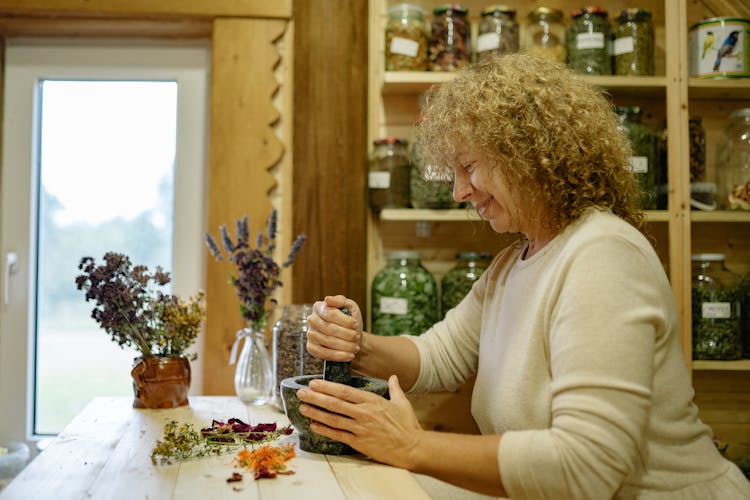All Categories
Featured
Table of Contents
TLDR Summary:
- 🌱 Eco-friendly pots reduce plastic waste.
- 🌧️ Self-watering planters ensure proper hydration.
- 🛠️ Sustainable tools help minimize carbon footprint.
- ♻️ Composting enriches soil naturally.
- 💧 Rain barrels conserve water effectively.
Sustainable gardening practices are not merely a trend; they are essential for creating a responsible gardening ethic that protects and nurtures the environment. These practices not only enhance the natural ecosystem but also support individual gardeners with efficient, innovative solutions. Innovations abound in this sphere, transforming our gardens into sustainable havens. Among the benefits of adopting these practices is the reduction of resource consumption and waste generation, ushering in a new era of gardening that embraces nature's cycles.
Using sustainable gardening tools is one way gardeners can step toward a greener future. For instance, eco-friendly flower pots, which can be crafted from a range of materials such as wood, stone, and terracotta, offer appealing alternatives to traditional plastic pots. By switching to these alternatives, one is able to significantly mitigate plastic waste, sending fewer materials to landfills and strengthening efforts towards conserving the environment. Many products now incorporate recycled materials, including innovative solutions made from ocean-bound plastics, providing extra motivation for gardeners to make environmentally conscious choices.
Alongside eco-friendly pots, sustainable gardening tools are worth exploring. These tools utilize recycled materials, which cuts down on waste generation while enhancing durability and functionality. As one switches to these tools, they're not just investing in a healthier environment but also reaping the benefits of products designed for longevity and ease of use.
Innovation also reaches into the irrigation techniques utilized within gardens. Self-watering planters present an exciting opportunity for gardeners to mitigate the common issues associated with watering such as root rot and lack of moisture. By ensuring a consistent supply of water, these planters cater to plants' needs without the excessive attention classic watering demands. This ideal situation fosters plant health and allows for a more hands-off approach, affording gardeners more time to enjoy their green space.
To ensure effective gardening, recycled kneeling pads can also play a role by offering essential comfort while being remnants of other products. Not only does this enhance the gardener's experience, but it contributes to a circular economy where materials are reused rather than discarded. In consideration of the structure of one’s garden, bamboo stakes are often recommended as a sturdy, sustainable alternative to plastic or metal trellises. Strong and adaptable, bamboo provides essential support for climbing plants while maintaining the earth-friendly ethos promoted in sustainable gardening.
Composting is another essential practice within sustainable gardening that should not go overlooked. Home composting efforts can transform dead leaves, scraps from lawn mowings, and decayed plant materials into nutrient-rich compost. This process helps gardeners cut down on waste while simultaneously enriching their garden’s soil. Provided as a natural fertilizer, compost is an excellent way to nourish plants, leading to healthier gardens that require fewer chemical additives.
Besides composting, incorporating rain barrels into standard gardening practices is a revolutionary way to conserve water. Utilizing rainwater not only reduces dependence on municipal water supplies but also optimizes garden hydration during dry periods. By capturing and storing rainwater, gardeners set up a sustainable water system that is instrumental in preserving this critical resource, particularly in areas prone to drought.
Addressing garden selection, choosing native plants yields significant benefits. Native species often require less water and fewer fertilizers since they are well adapted to the local environment. They provide natural habitats for wildlife, promoting biodiversity and reducing maintenance requirements. Such gardens can thrive sustainably, resulting in an environmentally friendly landscape design deeply connected to its surroundings, aiding in the fight against climate change.
The notion of climate-resilient gardening speaks to this growing understanding of gardening in the face of climate change. Adaptation involves selecting plants adaptive to changing climates and enhancing soil health, with considerations towards stormwater management. Creating resilient gardens that thrive despite environmental shifts encourages gardeners to rethink their approaches, ultimately leading to sustainable solutions benefiting both plants and local ecosystems.
Among the plethora of innovative gardening products available, systems such as the Garden Tower allow gardeners to maximize space while fostering healthy plant growth and compost generation through vermiculture. These multifaceted growing solutions maximize yield while maintaining an efficient use of space, perfectly aligning with the values of sustainability and productivity. Such innovations provide essential pathways for gardeners aiming to cultivate healthy, productive gardens without compromising environmental integrity.
By exploring these sustainable gardening practices and innovations, gardeners are equipped to foster ecosystems that not only thrive but also heal. These practices champion both wellness and sustainability, attesting to the fact that gardening can be a key player in environmental stewardship. The shift toward sustainable gardening speaks volumes about the increasing recognition of our collective responsibility to protect, nurture, and enhance our beautiful planet, cultivating a greener future, one garden at a time.
What are some eco-friendly gardening practices?
How can I make my garden more sustainable?
Key Takeaways:
- ♻️ Embrace eco-friendly pots and materials.
- 🌧️ Optimize hydration with sustainable planting techniques.
- 🌿 Choose native plants for low-impact gardening.
- 💧 Collect rainwater for efficient watering.
- 🛠️ Invest in long-lasting, sustainable gardening tools.

Get crucial overview now
Latest Posts
Mountain Trail Camping: Best Spots to Pitch Your Tent
The Efficient Soap-Filling Technique
Maximize Your Move: The Benefits of Box Labeling and Color-Coding